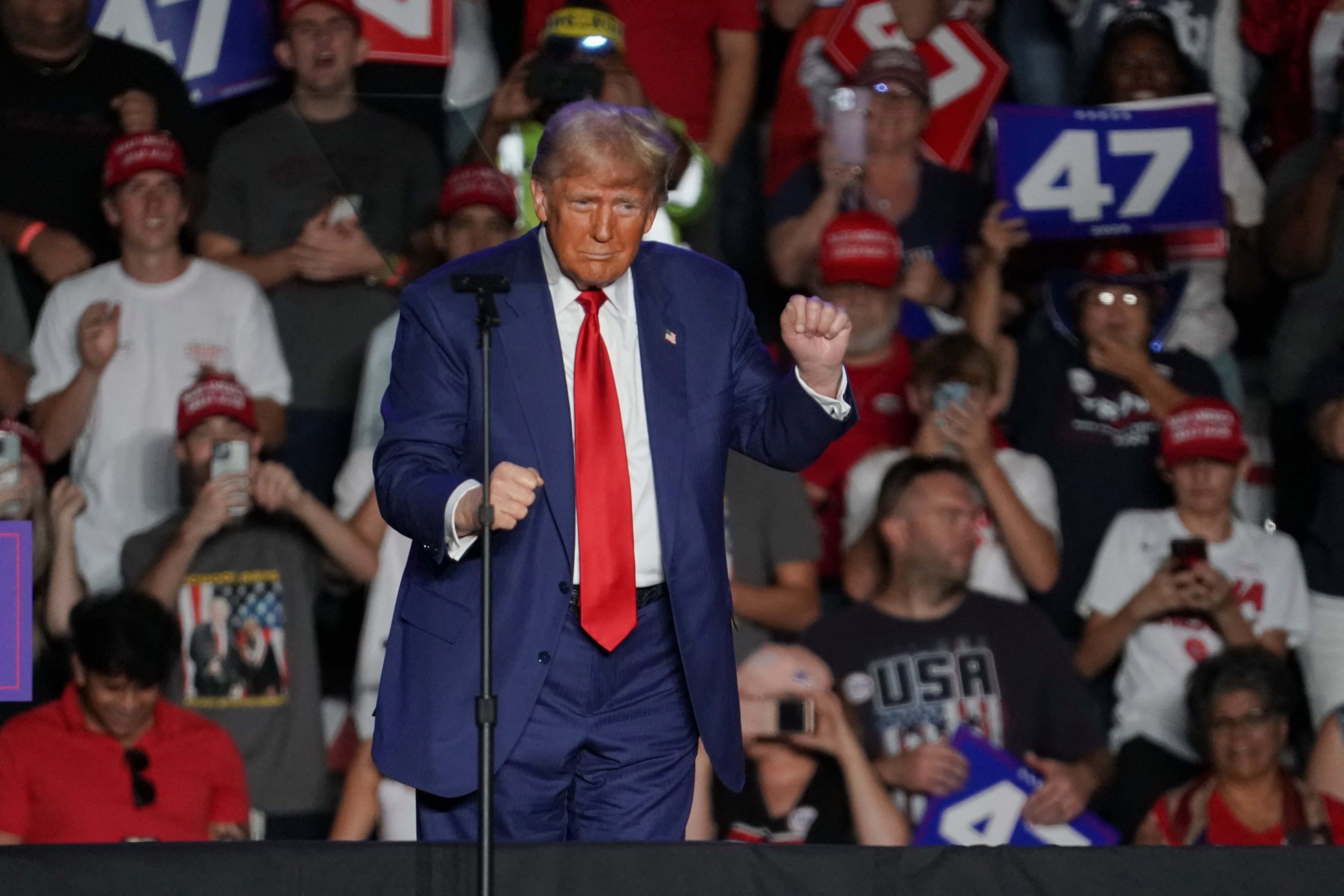With four days to go before Election Day, both Donald Trump and Kamala Harris were in Nevada and Arizona on Thursday to shore up support in the critical western swing states. At dueling rallies, the candidates made bids to win over Latino voters and focused on border security.
In Nevada, home to a large number of service workers and an economy that has struggled to rebound from COVID, Trump and Harris touted their plans for exempting tips from taxes.
In Arizona, both candidates are banking on ballot initiatives to boost turnout. Republicans are rallying around a ballot initiative making illegal border crossings a state crime, while Democrats are hoping a measure enshrining the right to an abortion in the state’s constitution will spur pro-choice voters to the polls.
Arizona is likely to come down to just one county: Maricopa.
There has been no shortage of attention paid to the seven swing states that are likely to decide this hyper-close election. But within those states, there are counties that are key indicators of how each state will end up.
“The counties to watch in the election are a mixture of bellwethers that tend to go the way of their states, big counties that have an outsized impact on state results, and counties that will provide key information on how the candidates are performing among particular demographic groups,” explains Eurasia Group’s Noah Daponte-Smith.
So, without further ado, here are the counties to watch as the results roll in on Tuesday night.
In Arizona, whoever wins Maricopa, which encompasses Phoenix and its surrounding areas, is likely to win the state’s 11 Electoral College votes. The whole election could hinge on this county because of how long it is expected to take to tally all of its votes.
Maricopa has a population of over 4.5 million residents, more than the populations of nearly half of the states in the US, and Republican-pushed voting laws are going to slow down the count. Because of this, election officials are warning that it could take up to 13 days to count all the ballots, which, if the election is close, could mean the winner isn’t known for nearly two weeks.
Pennsylvania has four bellwether counties that will serve as signals for whether the state – which has a 90% chance of determining the election – is going red or blue. Harris needs to excel in democratic stronghold Philadelphia, at least outpacing Biden’s 2020 performance, if she is going to win the Keystone State. Erie, Pittsburg, and Scranton are also key indicators of how the winds are blowing.
Pennsylvania is unlikely to be decided for a day or two because of rules that forbid counting absentee ballots before Election Day.
In Georgia, all eyes will be on Atlanta’s Fulton and DeKalb counties, as well as its surrounding suburbs of Gwinnett, Henry, and Cobb. The key thing to look for is Harris’ margins with Black voters, which not only are likely to determine whether she wins the state but will also shed light on how she is tracking with Black voters nationwide.
Wisconsin is anyone’s game and may depend on whether the margins in Milwaukee and its surrounding suburbs of Waukesha, Ozaukee, and Washington are closer to 2016, when Trump won, or 2020, when Biden took back the state.
North Carolina is expected to be the first swing state to be decided. As early results roll in, look at the Charlotte suburbs of Union and Cabarrus, which will show how Harris is faring among suburban voters.
Republicans have held the state in every election since Obama in 2008, when he won in large part because of high Black voter turnout. Harris needs to drive similar volumes of Democratic turnout, which is likely to come from the suburbs outside of cities like Charlotte, to offset Trump’s dominance in rural parts of the state.
